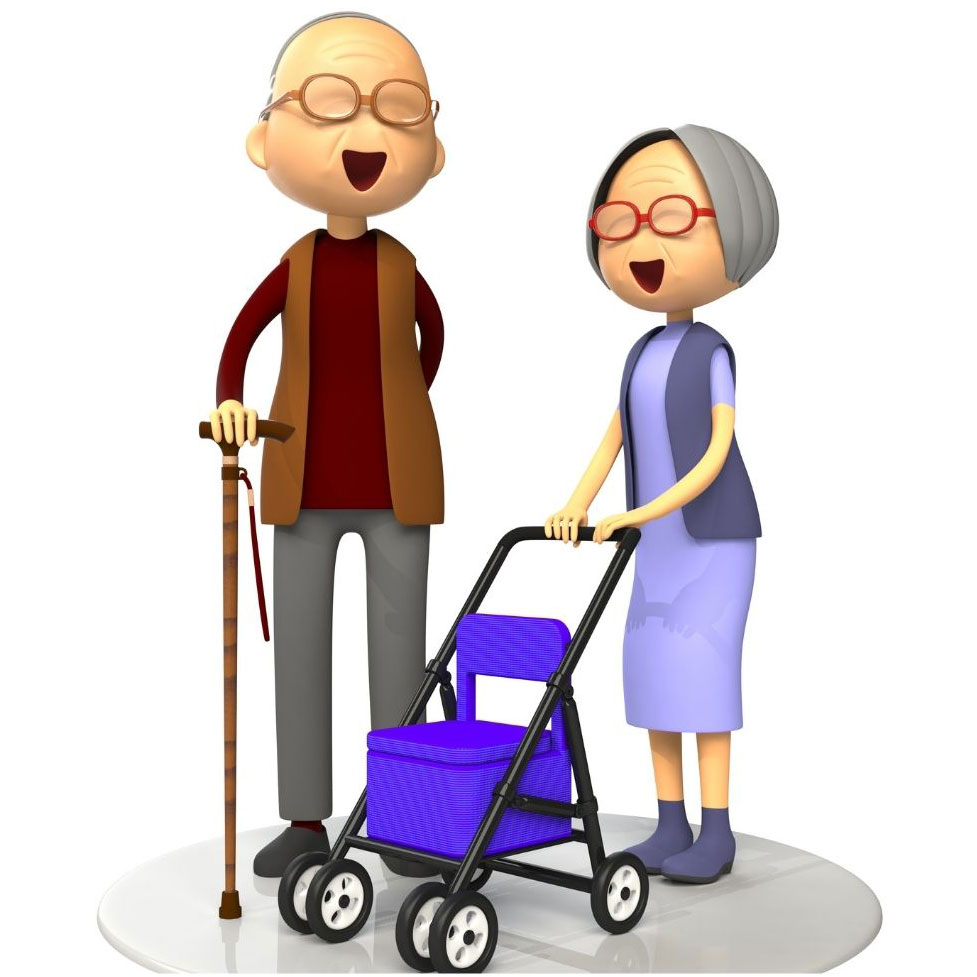Navigating the complex waters of legal matters is daunting at any age, but for us in our golden years, it becomes a crucial task that we cannot afford to overlook. As I’ve journeyed through my own aging process, I’ve realized that understanding essential legal matters is not just a need—it’s an absolute must for maintaining our independence, security, and peace of mind. Here at Elderly Independence, we believe in empowering ourselves with knowledge and tools to make informed decisions. This article dives into the heart of the legal matters all elderly need to know, blending my personal insights with expert advice, to guide you through this often intimidating yet vital terrain. Remember, being prepared legally isn’t just about confronting the unknown; it’s about securing the quality of life we’ve worked so hard to achieve.
Legal Matters All Elderly Need To Know: Estate Planning for Seniors

Estate planning is a crucial aspect of legal matters for seniors. It involves making arrangements for the management and distribution of one’s assets and properties after their passing. For seniors, estate planning becomes even more important as they approach their later years and want to ensure that their wishes are carried out and their loved ones are taken care of.
In this section, we will delve into the various aspects of estate planning that are specifically relevant to seniors. This may include creating a will, establishing trusts, and designating beneficiaries. Seniors may also need to consider factors such as tax planning, minimizing probate costs, and protecting their assets from potential creditors.
Estate planning for seniors also involves making decisions regarding healthcare and end-of-life preferences. This may include creating advance healthcare directives, such as living wills and healthcare proxies, to ensure that their medical wishes are respected and followed.
Additionally, seniors may need to address issues related to long-term care and nursing home expenses. This may involve exploring options such as long-term care insurance, Medicaid planning, and setting up special needs trusts.
Overall, estate planning for seniors is a comprehensive process that requires careful consideration and expert guidance. By addressing these matters proactively, seniors can have peace of mind knowing that their affairs are in order and their loved ones are protected.
Legal Matters All Elderly Need To Know: Wills and Trusts for Seniors

When it comes to planning for the future, wills and trusts are essential legal tools for seniors. A will is a legal document that outlines how a person’s assets and property should be distributed after their death. It allows seniors to specify their wishes and ensure that their loved ones are taken care of. Without a will, the distribution of assets may be determined by state laws, which may not align with the senior’s intentions.
Trusts, on the other hand, are legal arrangements that allow seniors to transfer their assets to a trustee who will manage and distribute them according to the senior’s instructions. Trusts can be revocable or irrevocable, and they offer flexibility and control over the distribution of assets. They can also help seniors avoid probate, which can be a lengthy and costly process.
For seniors, wills and trusts are particularly important because they provide a way to protect their assets and ensure that their wishes are carried out. They can also help minimize estate taxes and provide for the care of dependents, such as children or grandchildren.
It is crucial for seniors to consult with an experienced estate planning attorney to create a will and trust that align with their specific needs and goals. An attorney can provide guidance on the legal requirements and help seniors navigate complex issues such as tax implications and asset protection.
In conclusion, wills and trusts are vital components of estate planning for seniors. They offer a way to protect assets, ensure the proper distribution of property, and provide for loved ones. Consulting with an attorney specializing in elder law can help seniors create a comprehensive plan that safeguards their rights and secures their future.
Legal Matters All Elderly Need To Know: Power of Attorney for Seniors

The power of attorney is a legal document that grants someone the authority to make decisions on behalf of another person. For seniors, having a power of attorney in place is crucial as it allows them to designate a trusted individual to handle their financial and legal affairs if they become incapacitated or unable to make decisions on their own.
In this section, we will explore the importance of power of attorney for seniors and provide guidance on how to establish one. We will discuss the different types of power of attorney, including durable power of attorney, which remains in effect even if the senior becomes incapacitated, and springing power of attorney, which only becomes effective under specific circumstances.
We will also delve into the responsibilities and duties of the designated power of attorney, emphasizing the need for open communication and trust between the senior and their chosen representative. Additionally, we will address common concerns and considerations when selecting a power of attorney, such as choosing someone who is reliable, responsible, and capable of handling financial matters.
Furthermore, we will provide information on the potential risks and safeguards associated with power of attorney, including the importance of selecting a trustworthy individual and regularly reviewing and updating the document as needed.
By understanding the significance of power of attorney for seniors and taking the necessary steps to establish one, older adults can have peace of mind knowing that their financial and legal affairs will be managed according to their wishes, even if they are unable to do so themselves.
Legal Matters All Elderly Need To Know: Healthcare Directives for Seniors

Healthcare directives are legal documents that allow individuals to express their wishes regarding medical treatment and healthcare decisions in the event that they become unable to communicate or make decisions for themselves. For seniors, healthcare directives are particularly important as they provide a way to ensure that their healthcare preferences are respected and followed.
In this section, we will explore the various types of healthcare directives that are relevant to seniors. This may include living wills, which outline specific medical treatments or interventions that an individual does or does not want in certain situations. It may also include durable power of attorney for healthcare, which designates a trusted person to make medical decisions on behalf of the senior if they are unable to do so.
Additionally, this section may cover topics such as do-not-resuscitate (DNR) orders, which indicate that a senior does not wish to be resuscitated in the event of cardiac arrest, and advance healthcare directives, which provide more comprehensive instructions for medical care and treatment.
By understanding and creating healthcare directives, seniors can have peace of mind knowing that their healthcare preferences will be honored, even if they are unable to communicate them directly. This section will provide valuable information and resources to help seniors navigate the process of creating healthcare directives and ensure that their wishes are respected and followed.
Legal Matters All Elderly Need To Know: Elder Abuse and Legal Protections

Elder abuse is a serious issue that affects many senior citizens, and it is important for them to be aware of their legal protections. This section of the article will provide valuable information and resources on elder abuse and the legal measures that can be taken to prevent and address it.
Elder abuse can take various forms, including physical, emotional, financial, and sexual abuse, as well as neglect and abandonment. It is often perpetrated by family members, caregivers, or other individuals in positions of trust. Seniors who experience abuse may suffer from physical injuries, emotional trauma, financial exploitation, and a decline in their overall well-being.
To combat elder abuse, there are legal protections in place to safeguard the rights and interests of seniors. These may include laws that criminalize elder abuse, as well as civil remedies that allow victims to seek compensation and protection. It is crucial for seniors and their loved ones to understand these legal protections and how to access them.
This section will also provide information on recognizing the signs of elder abuse and steps that can be taken to prevent it. It will highlight the importance of reporting suspected abuse to the appropriate authorities and seeking legal assistance to ensure that the rights of the senior are protected.
By addressing the issue of elder abuse and providing seniors with the necessary legal knowledge and resources, this section aims to empower them to protect themselves and take action against any form of abuse they may encounter.
Legal Matters All Elderly Need To Know: Guardianship for Seniors

Guardianship is an important legal matter that affects many seniors who may be unable to make decisions for themselves due to physical or mental incapacity. This section of the article will provide valuable information and resources on guardianship for seniors.
When a senior is no longer able to make decisions regarding their personal care, finances, or property, a guardian may be appointed by the court to make these decisions on their behalf. The guardian is typically a family member or close friend who is willing and able to take on this responsibility. However, in some cases, a professional guardian may be appointed.
This section will discuss the process of obtaining guardianship, including the necessary legal steps and documentation. It will also provide guidance on the responsibilities and duties of a guardian, such as managing the senior’s finances, making healthcare decisions, and ensuring their overall well-being.
Additionally, this section will address the potential challenges and disputes that may arise in guardianship cases, such as disagreements among family members or concerns about the guardian’s actions. It will provide information on how to navigate these issues and seek legal remedies if necessary.
Overall, this section will serve as a comprehensive guide to guardianship for seniors, offering valuable insights and resources to help seniors and their families make informed decisions and protect their rights.
Legal Matters All Elderly Need To Know: Medicare and Medicaid for Seniors

Medicare and Medicaid are two government programs that provide healthcare coverage for seniors, but they have different eligibility requirements and cover different services. Understanding the differences between these programs is crucial for seniors to ensure they receive the appropriate healthcare coverage they need.
Medicare is a federal health insurance program primarily for individuals aged 65 and older. It is also available for certain younger individuals with disabilities or end-stage renal disease. Medicare is divided into different parts, including Part A (hospital insurance), Part B (medical insurance), Part C (Medicare Advantage plans), and Part D (prescription drug coverage). Each part covers specific services and has its own costs and enrollment periods.
On the other hand, Medicaid is a joint federal and state program that provides healthcare coverage for individuals with limited income and resources. It is available to people of all ages, including seniors, who meet the eligibility criteria. Medicaid covers a wide range of medical services, including doctor visits, hospital stays, long-term care, and prescription drugs. Eligibility for Medicaid varies by state, and seniors may need to meet certain income and asset limits to qualify.
Seniors should carefully review their healthcare needs and financial situation to determine whether they are eligible for Medicare, Medicaid, or both. It is important to note that Medicare does not cover all healthcare costs, and seniors may need to consider additional coverage options, such as Medicare Supplement Insurance (Medigap) or Medicare Advantage plans, to fill in the gaps.
By understanding the intricacies of Medicare and Medicaid, seniors can make informed decisions about their healthcare coverage and ensure they receive the necessary medical services without facing financial hardships. Seeking guidance from legal professionals specializing in senior legal matters can provide seniors with the necessary expertise to navigate these complex programs and protect their rights and future.
Legal Matters All Elderly Need To Know: Social Security Benefits For Seniors

Social Security provides a financial safety net for elderly individuals, especially in the United States, where it represents a vital part of social welfare. While it comes with numerous advantages, it’s also essential to recognize some of its disadvantages to have a holistic view.
Advantages of Social Security for the Elderly:
- Financial Stability:
- Provides a steady income source for retirees and helps them manage their financial needs.
- Poverty Reduction:
- Reduces the rate of poverty among the elderly by providing them with a basic income.
- Economic Stimulus:
- The spending of Social Security benefits helps stimulate the economy.
- Inflation Protection:
- Social Security benefits are adjusted for inflation, helping recipients to maintain their purchasing power.
- Survivor Benefits:
- Provides financial support to the spouses and dependent children of deceased workers.
- Disability Benefits:
- Offers financial assistance to eligible individuals who cannot work due to a disability.
- Insurance for Longevity:
- Provides income for those who outlive their personal savings or pensions.
- Equality:
- Provides benefits to all eligible workers and their families, irrespective of their socioeconomic status.
Disadvantages of Social Security for the Elderly:
- Insufficient Income:
- The benefits provided by Social Security might not be sufficient to cover all of an individual’s retirement expenses.
- Solvency Concerns:
- There have been ongoing concerns about the long-term solvency of the Social Security system and whether it can continue to pay full benefits in the future.
- Early Retirement Penalty:
- Those who opt for Social Security benefits before their full retirement age receive reduced benefits.
- Taxation of Benefits:
- In certain situations, Social Security benefits are subject to federal (and possibly state) income tax, reducing the net income for the recipient.
- Inequity Concerns:
- Some argue that the Social Security system is not equitable since individuals with higher incomes often receive more benefits due to their higher contributions, even though they might not need them as much as lower-income individuals.
- Dependency:
- There is a risk that some individuals may overly depend on Social Security benefits and not adequately save for retirement.
- Opportunity Cost:
- Individuals and employers must pay Social Security taxes, which could potentially be invested elsewhere for potentially higher returns.
- Work Disincentives:
- Some policies within the Social Security system might discourage continued employment among older workers.
Each of these points provides a basis for further exploration, potentially sparking a broad conversation about the future of Social Security and how it can be improved or supplemented to better support the elderly population. This framework can be particularly relevant in developing policy recommendations or understanding the diverse experiences of retirees.
Legal Matters All Elderly Need To Know: Retirement Planning and Long-Term Care Options for Seniors

Retirement planning and long-term care options are crucial considerations for seniors as they navigate their golden years. This section of the article will provide valuable information and resources to help seniors make informed decisions about their retirement and long-term care needs.
Retirement planning involves careful financial management to ensure a comfortable and secure retirement. Seniors may be interested in learning about various retirement savings options, such as individual retirement accounts (IRAs), 401(k) plans, and pensions. They may also seek guidance on how to maximize their social security benefits and navigate the complexities of Medicare.
Long-term care options are essential for seniors who may require assistance with daily activities or medical care as they age. This section will explore different long-term care options, including in-home care, assisted living facilities, and nursing homes. It will provide information on the costs associated with each option and discuss strategies for financing long-term care, such as long-term care insurance and Medicaid.
Additionally, this section may touch upon the importance of creating a comprehensive retirement and long-term care plan that takes into account potential healthcare needs, housing preferences, and financial considerations. It may also highlight the importance of involving loved ones in the decision-making process and seeking professional advice from financial planners and elder law attorneys.
By providing seniors with valuable information and resources on retirement planning and long-term care options, this section aims to empower them to make informed decisions that will secure their future and ensure a high quality of life in their later years.
Click Here for more information
Frequently Asked Questions
What are the legal issues of the elderly?
The legal issues may include income security, health care, long-term care, nutrition, housing, utilities, protective services, defense of guardianship, abuse, neglect, and age discrimination. It is important for elders to know their rights and seek advice when they need it.
What are the rights of senior citizens in the United States?
An elderly person has the right to be treated with dignity and respect, without regard to race, religion, nationality, sex, age, disability, marital status, or source of payment. This means that the elderly person has the right to: Make his or her own choices about personal affairs, care, benefits, and services, and
What are the five most crucial rights of the elderly?
The principles include the right for Independence, Participation, Care, Self-fulfillment and Dignity. With the advancement of science and medicine, many people with long term physical, mental, intellectual or sensory impairments live longer and reach older age, and consequently could be experiencing elder abuse
Reflecting on everything we’ve explored together in this article, it’s clear that legal preparedness isn’t merely a precaution—it’s the backbone of our sustained independence and dignity as we age. Each legal document, each decision, contributes to a safety net that protects us and our loved ones from the uncertainties of life. My journey here at Elderly Independence has taught me that facing these legal matters head-on is not about anticipating the end but rather about cherishing and safeguarding our present and our legacy. Armed with the right information and support, we’re not just elderly; we’re wise, prepared, and empowered. Let’s continue to face the future with confidence, knowing we’ve taken charge of the legal matters essential to our well-being.






